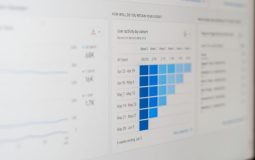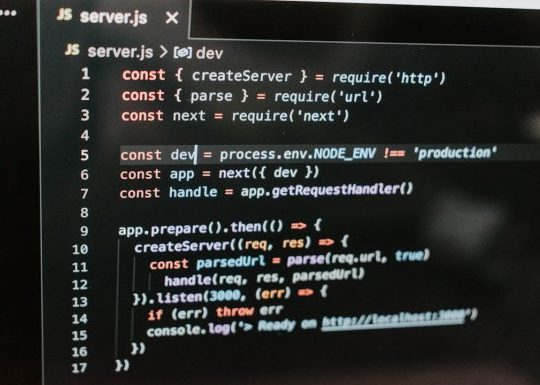Data is everywhere. Companies use it to make smart decisions. But not all data jobs are the same. Two of the most popular data roles are Database Analyst and Data Engineer. They sound similar, but they are quite different. Let’s dive into what each role does, where they overlap, and how you can switch from one to the other.
What Does a Database Analyst Do?
All Heading
Think of a Database Analyst (or DBA) as someone who makes sure data is clean, correct, and easy to find. Their job is to make sense of raw numbers. They look at trends. They ask questions like:
- What are our top-selling products?
- Which customers buy the most?
- Is sales growing in a certain region?
To do this, they write SQL queries, work with dashboards, and clean up bad data. They often use tools like:
- SQL Server
- Excel
- Tableau
- Power BI
They work closely with business teams. They find answers to important questions. Their focus is on using data to make decisions.
What Does a Data Engineer Do?
A Data Engineer builds the systems that collect and move data. Imagine pipes that carry water. These pros build and fix the data “pipes.”
They make sure data flows smoothly from places like websites, sensors, and apps to a final database. They also clean the data as it travels. Their tools include:
- Apache Spark
- Airflow
- Python
- SQL
- AWS or Google Cloud
Data Engineers don’t often analyze the data. Instead, they help Analysts and Data Scientists get the data they need, fast and clean. Without them, the fancy dashboards wouldn’t work.

Key Differences
Here’s a simple way to tell them apart:
| Database Analyst | Data Engineer |
|---|---|
| Finds answers in data | Builds systems to move and clean data |
| Works with business teams | Works with IT and data architecture teams |
| Uses SQL, Excel, dashboards | Uses Python, Spark, data pipelines |
| Improves data quality | Handles big data systems |
Where Do They Overlap?
Even with different goals, they share some common skills. For example:
- Both write SQL queries
- Both care about data quality
- Both may do some data cleaning
- Both need to understand business needs
Sometimes, in small companies, one person may do both jobs. That’s why it’s helpful to understand both roles—even if you only work in one.
Which Job is Right for You?
It depends on your strengths and interests. Ask yourself:
- Do I enjoy working with people and answering questions? Pick Analyst.
- Do I love building systems and writing code? Pick Engineer.
Here’s another way to look at it:
- If you love Excel: Analyst.
- If you love Python: Engineer.
- If you’re a storyteller: Analyst.
- If you’re a fixer and builder: Engineer.
And remember, both are great careers with lots of demand!
Can You Switch from One Role to the Other?
Yes, absolutely! Many people move from being a Database Analyst to a Data Engineer—or the other way around. Here’s how:
If You’re a Database Analyst Wanting to Become a Data Engineer:
Start building your coding skills. Focus on:
- Python: Learn how to handle and clean data with it.
- Cloud Platforms: Try AWS, Azure, or Google Cloud labs.
- ETL Tools: Learn about Airflow, dbt, or Talend.
Also, try working with larger datasets. Set up hobby projects that mimic real-world pipelines. This will make you job-ready.
If You’re a Data Engineer Wanting to Try a More Analytical Role:
Focus on your business knowledge. Get more comfortable with:
- Data Visualization: Learn tools like Power BI or Tableau.
- Statistics: Basic analysis goes a long way.
- Communication: Practice presenting data insights.
Try answering real-world business questions with data. Maybe help the marketing or sales teams with analytics.

How Much Do They Earn?
Good news—they both pay well!
Here’s a general idea (in the U.S.):
- Database Analyst: $70,000 to $100,000 per year
- Data Engineer: $90,000 to $140,000 per year
Of course, salaries change based on your experience, location, and the tools you know. But both are solid choices for a good living.
Which Role Is Growing Faster?
Both roles are in demand. However, with the rise of big data, machine learning, and the cloud—Data Engineering is growing very fast!
Why? Because companies now collect massive amounts of data. They need strong pipelines and systems to manage it all. So if you’re okay with some extra tech learning, becoming a Data Engineer could lead to more job options down the road.
Fun Fact
The line between these roles is getting blurrier! Some companies now use terms like:
- DataOps
- Analytics Engineer
- Full-stack Data Pro
That just means they’ve combined parts of both jobs into one. So knowing a bit of everything will make you a star candidate!
Final Thoughts
Database Analysts and Data Engineers work with the same goal: to make data useful.
One focuses on using the data. The other builds the systems to get it there. Both roles are fun, challenging, and important.
If you’re just starting out, pick the one that fits your strengths. And if you ever feel like switching later on—that’s possible too!
The cool thing about working in data? You always keep learning. And there’s always room to grow.
So whether you’re querying or coding, analyzing or engineering—you’re on the right track!













Recent Comments